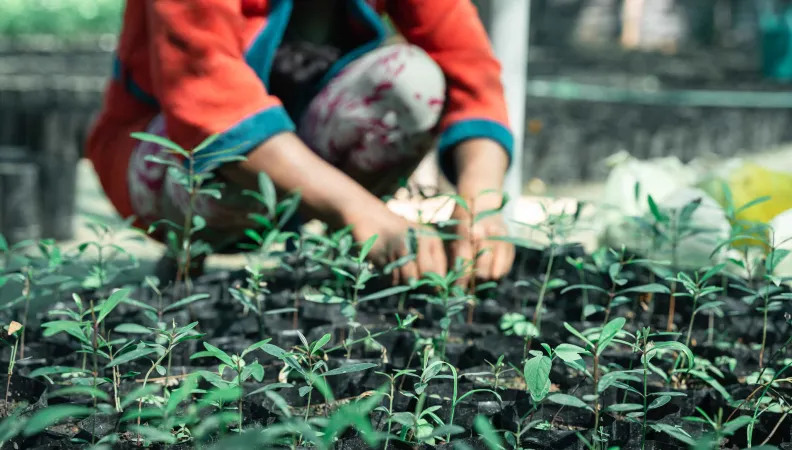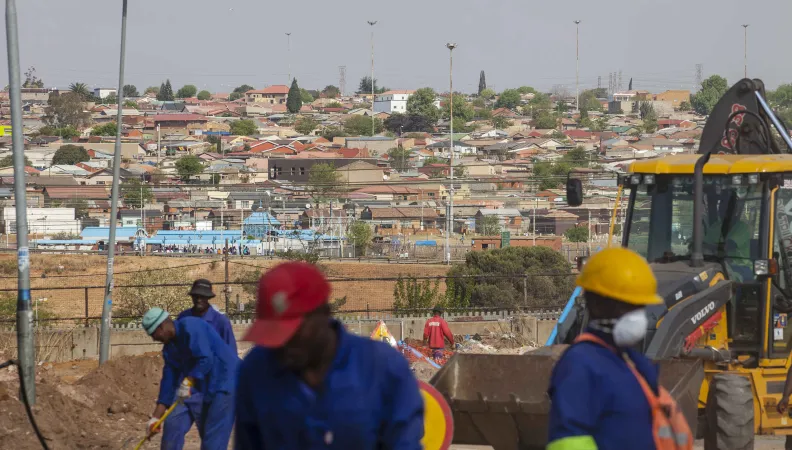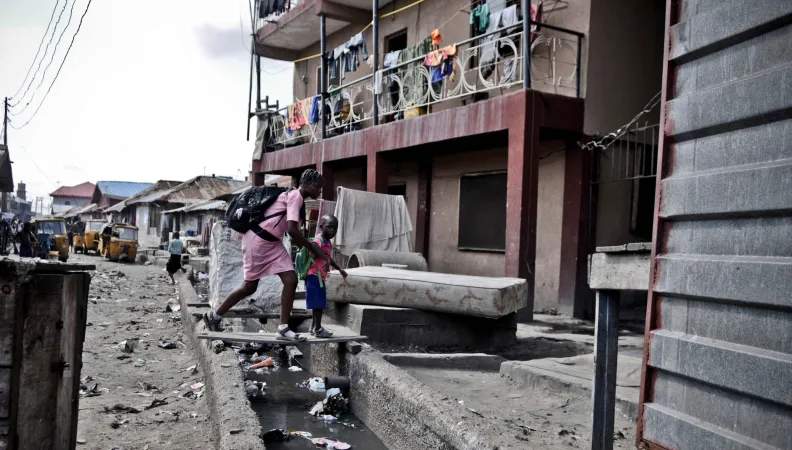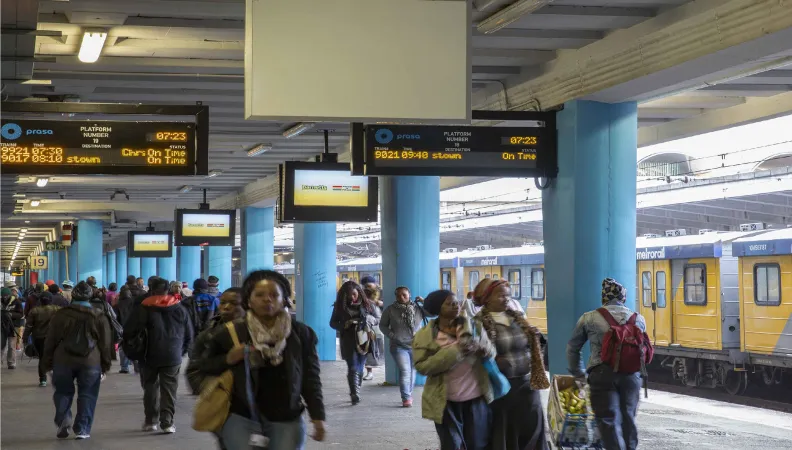 Legal notice EU (project) How can we measure the efforts made by developing countries to combat the inequalities and the impacts of climate change while taking into account the socioeconomic structure of these countries? The EU-AFD Research Facility on Inequalities will seek to answer this question in collaboration with the Ghanaian research think tank Placefeet.
Legal notice EU (project) How can we measure the efforts made by developing countries to combat the inequalities and the impacts of climate change while taking into account the socioeconomic structure of these countries? The EU-AFD Research Facility on Inequalities will seek to answer this question in collaboration with the Ghanaian research think tank Placefeet.
Contexte
Many of the measures on quantifying progress by countries towards reducing income inequality have focused on indices that measure trends in inequality over time (Gini coefficient for example) and compare countries without considering the differences between their socioeconomic structures.
However, these indices do not paint the complete picture about how countries are performing, especially when compared to one other in achieving Sustainable Development Goals and what policies and investments may be needed to support them. This research project will provide an alternative measurement of income inequality by taking into account the developing countries’ structural or predetermined conditions (mineral assets, type of institutions etc.) in assessing their progress towards reducing inequality and the impacts of climate change.
This project is part of the call for research proposals “Advancing the inequality agenda through collaborative research: identifying the priorities for a global Team Europe approach on inequalities”, launched by the Strategic Committee of the Research Facility on Inequalities. It is coordinated by AFD and co-financed by the European Commission, AECID and ENABEL.
Objectif
The project focuses on the following objectives:
- Firstly, it will compare each country with its potential to reduce income inequalities by measuring the scope for improvement for each country at every year. This will allow a better understanding of the key factors that hinder a country’s effort and performance in reducing inequalities and of the policy and investments that are needed to tackle inequalities more efficiently.
- Secondly, it will investigate how climate – temperature, precipitation and extreme weather events– influence the efficiency of countries in combining inputs to reduce inequality.
- Thirdly, it will look at adaptation or intensification effects across regions, particularly in LDCs and SIDS and will identify the needed scale of investments.
Méthode
Building on a panel database on 145 countries, including countries from Least Developed Countries (LDCs) and Small Island Developing States (SIDS) from 2000-2020, the project will use a stochastic frontier approach, an economic modelling technique, to estimate feasible frontiers for income inequality for each country and year.
Résultats
You will find below the different research papers related to this project :
In progress
 Legal notice EU (project) How could the Social Relief Distress grant be redesigned to maximize impact on poverty and unemployment reduction, while being sustainable in the longer term? The Extension of the EU-AFD Research Facility on Inequalities will seek to answer this question in partnership with SALDRU (University of Cape Town – Southern Africa Labour and Development Research Unit).
Legal notice EU (project) How could the Social Relief Distress grant be redesigned to maximize impact on poverty and unemployment reduction, while being sustainable in the longer term? The Extension of the EU-AFD Research Facility on Inequalities will seek to answer this question in partnership with SALDRU (University of Cape Town – Southern Africa Labour and Development Research Unit).
Context
South Africa’s Economic Reconstruction and Recovery Plan was launched in October 2020 by the Presidency in response to the economic impacts of the Covid-19 pandemic. Besides the Presidential Employment Stimulus program, it included emergency social protection measures, among which the introduction of a special Covid-19 Social Relief of Distress grant (SRD), providing ZAR350 per month for unemployed people not covered by any other form of support. The South African government now seeks to develop options for the future of SRD grant.
This project is part of the Extension of the EU-AFD Research Facility on Inequalities. Coordinated by AFD and financed by the European Commission, the Extension of the Facility will contribute to the development of public policies aimed at reducing inequalities in four countries: South Africa, Mexico, Colombia and Indonesia over the period 2021-2025.
Objectives
The objective of this research project is to produce motivated recommendations on how the SRD should be designed going forward into the longer term, in order to maximize the impact of the grant on employment outcomes and to ensure it effectively reduces poverty, while maintaining its cost to an acceptable level:
- To maximise the impact of the grant on employment, the project needs to understand how to design and label the grant to encourage its use for job search.
- To ensure the grant effectively reduces poverty, the project must figure out the most cost-effective way to target and assess the eligibility of recipients. Moreover, poverty reductions can be scaled up by determining measures that could encourage take up among the most disadvantaged.
Once these goals have been achieved, and in order to inform public decision-making, these findings must be communicated to a number of stakeholders in government and civil society.
This project is part of a wider research program conducted with several South African research centres and in close collaboration with the South African Presidency. Four other research projects analysing the externalities of the Covid-19 stimulus policy are currently being developed as part of the first pillar of the Extension's activities in South Africa.
Method
This research project uses the model generated to conduct the 2014/2015 fiscal incidence assessment and introduces updated data for 2019-2021. It simulates five scenarios around eligibility criteria, targeting mechanisms, value, disbursement model and conditionalities and computes the potential impact on poverty and employment outcomes.
Publications
You will find below the research paper related to this project:
Contact
- Anda David, AFD Research Officer
 Legal notice EU (project) Through which channels did the Covid-19 pandemic impact inequalities in Togo? What have been the effects of the “Novissi” cash transfer program implemented by the Togolese government on the mitigation of income inequality? The EU-AFD Research Facility on Inequalities will seek to answer these questions in collaboration with the University of Lomé.
Legal notice EU (project) Through which channels did the Covid-19 pandemic impact inequalities in Togo? What have been the effects of the “Novissi” cash transfer program implemented by the Togolese government on the mitigation of income inequality? The EU-AFD Research Facility on Inequalities will seek to answer these questions in collaboration with the University of Lomé.
Context
Research has already shown that some population groups have been harder hit by Covid-19 than others and that the pandemic exacerbated existing inequalities in many areas, including health, education, work, and gender.
In this context, inequality has become a central issue for governments willing to fight the effects of the pandemic and to better prepare for future shocks. In April 2020, the Togolese government set up a cash transfer program called "Novissi", with the financial contribution of AFD, to support any eligible Togolese citizen who lost his or her income due to the adoption of the response measures against Covid-19.
This project is part of the call for research proposals “Advancing the inequality agenda through collaborative research: identifying the priorities for a global Team Europe approach on inequalities”, launched by the Strategic Committee of the Research Facility on Inequalities. It is coordinated by AFD and co-financed by the European Commission, AECID and ENABEL.
Goal
Studies using updated data and capturing the potential effects of the Covid-19 pandemic on income inequality and poverty in Togo are relatively scarce.
This research project aims to fill the gap in academic literature by:
- Analyzing the impacts of Covid-19 on inequality in Togo;
- Evaluating the effects of the Togolese social policy « Novissi » on mitigating the impact of Covid-19 on inequality.
Method
Using rich microeconomic data from a survey conducted by Togo's Institut National de la Statistique et des Études Économiques et Démographiques (INSEED) aimed at analysing the impact of the Covid-19 pandemic, the research team will estimate an econometric model based on the model developed by Dang and Nguyen (2021).
Results
You will find below the different research papers related to this project:
In progress
Contact:
- Anda David, Research Officer, AFD
 Legal notice EU (project) How do spatial variation in inequality and quality of institutions interact to explain variation in subjective wellbeing in South Africa? The EU-AFD Research Facility on Inequalities will seek to answer this question in collaboration with the University of Cape Town (UCT).
Legal notice EU (project) How do spatial variation in inequality and quality of institutions interact to explain variation in subjective wellbeing in South Africa? The EU-AFD Research Facility on Inequalities will seek to answer this question in collaboration with the University of Cape Town (UCT).
Context
Despite several efforts to promote pro-poor growth, South Africa remains one of the most unequal countries in the world. While the country's colonial history and apartheid are known to have contributed to this inequality level, the nature and dynamics of its impact on society are yet to be fully understood.
Literature suggests that better institutions and lower level of inequality improve subjective wellbeing. However, evidence that examine how the interaction between these two variables explain variation in wellbeing is relatively scarce. This study will thus contribute to a deeper understanding of inequalities in South Africa.
This project is part of the call for research proposals “Advancing the inequality agenda through collaborative research: identifying the priorities for a global Team Europe approach on inequalities”, launched by the Strategic Committee of the Research Facility on Inequalities. It is coordinated by AFD and co-financed by the European Commission, AECID and ENABEL.
Goal
This research project has two main objectives:
- Explore how variations in governance (such as audit outcomes) across South Africa's district municipalities explain the variation in the well-being of individuals.
- Investigate how the interaction between the variation in governance across local government municipalities and inequality among individuals explains variation in subjective well-being.
Method
To investigate the interactions between the quality of institutions and of the governance, the level of spatial inequality and the subjective wellbeing, researchers will use the National Income Dynamics Study (NIDS), a nationally representative survey of individuals across South Africa, which is repeated over five waves between 2008 and 2017. They will also use audit outcomes of local municipalities to proxy for the quality of governance.
Results
You will find below the different research papers related to this project:
In progress
Contact:
- Anda David, Research Officer, AFD
